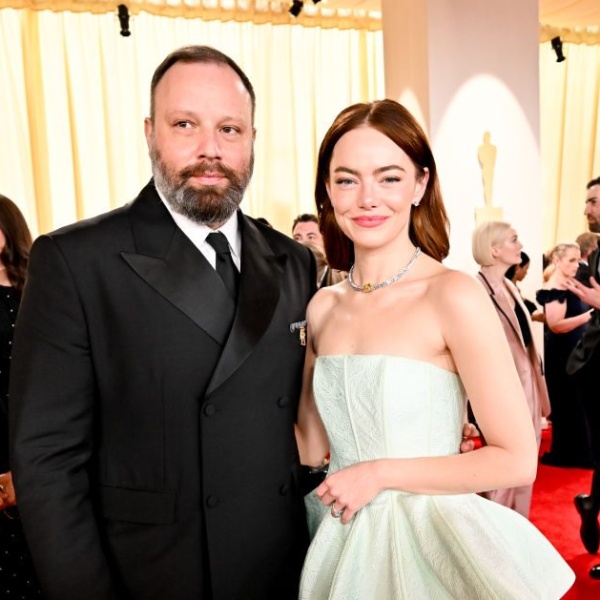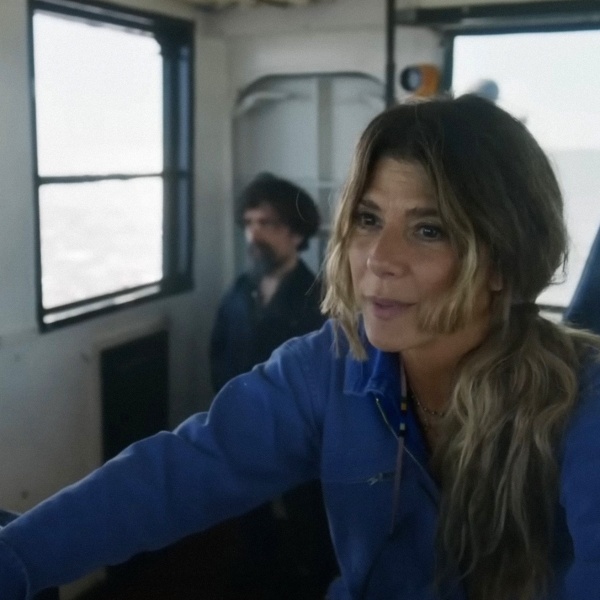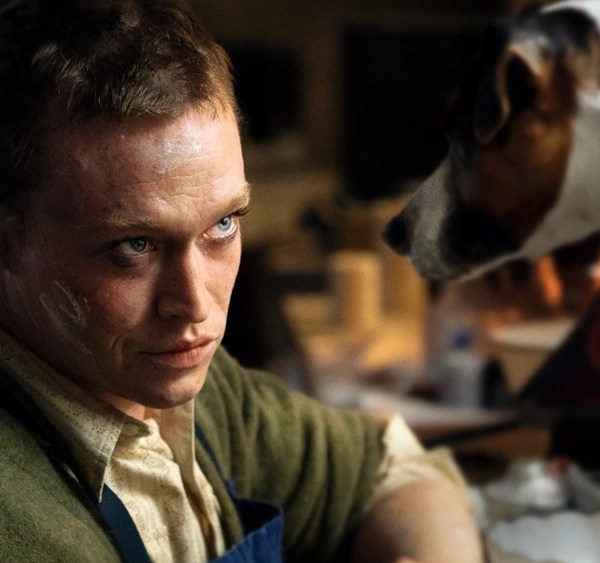
It’s Musicals Week at IndieWire. With “Wicked” about to sparkle over theaters, we’re celebrating the best of the movie-musical genre.
It was the fall of 2018, and for a week or so, my co-writers, producers, and I were on a pitch tour, taking our idea for an original film musical around to every major studio in Los Angeles. As part of our pitch, we played a few sample compositions to give backers an idea of the vibe of music featured in the film and even sang a bit of one of the songs we planned on incorporating into the script.
For my collaborators and I, this was always a crucial element in getting our story across — this was a MUSICAL, guided by song and informed by our characters’ taste and appreciation of the form. And every time my co-writers would burst into a duet as I narrated the circumstance, the mouths in the room dropped. These execs, people who were used to having words hurled at them all day long, were enraptured by this sudden shift in delivery.
Without fail, after the song was finished, they would stop the pitch and ask where the music had come from, shocked that we’d written it ourselves. Once the tour was wrapped up, only one studio ended up actually making an offer and, as we negotiated the terms of our contract, we were saddened to discover that, despite their initial excitement, they didn’t want us to write any of the songs until they had a script they were sure they liked.
For context, this was the first big sale for most of the team involved, and we didn’t want to get into a prolonged debate over the integral nature music had to our story, but ultimately, we were able to get the studio to commission us for three of the 12 or so songs that were supposed be part of the film. Despite multiple drafts, all of which seemed to impress everyone involved, the studio never let us write all of the music that would’ve made this film come alive and, in turn, we were unable to find other collaborators willing to take a risk on an incomplete vision.
I share this story not to seek sympathy or pity for a failed effort, but to show the uphill battle musicals face (especially when they’re original) in both being released and in being developed at all. And it’s not because they’re unsuccessful (“Wonka” grossed over half a billion just last year, and “Wicked” looks to do the same or better) or because they’ve fallen out of fashion with modern audiences as some would have us believe. On a much more fundamental level, most studios no longer have any institutional knowledge of what makes them so special, therefore undervaluing them at every opportunity.
This hasn’t stopped musicals from being made, but over the last two decades, very few marketing executives actually seem interested in promoting them as such. Take, for instance, the following trailers for Baz Luhrmann’s “Moulin Rouge!” and Bill Condon’s adaptation of “Dreamgirls.”
Notice both trailers try to show as few shots of people singing as possible, instead focusing mainly on scenes that spell out the plot and brief cuts of movement.
In the case of “Moulin Rouge!,” rather than promote the fact that the film was a jukebox musical featuring new versions of songs from Christina Aguilera, Lil’ Kim, David Bowie, Elton John, and more, the trailer closes with very strategically worded text that reads, “With New Music By…”
Now take a look at a more recent example with last year’s “Wonka.”
While there’s plenty of shots of people dancing and lots of colorful sequencing, at no point is it clear that anyone will be singing in this film or that’s it’s a key part of how the narrative functions.
Contrast this with the trailer for “An American in Paris” below.
Obviously, this is a much older style of trailer, but rather than hide what may turn some off, it works to show audiences why they should find this type of storytelling so appealing and exciting. It reflects a time when studios felt pride in their efforts or, at the very least, wanted audiences to know what they were getting. It works to convince people, not trick them as many modern movie musical marketing campaigns seem intent on doing.
So when did things change? Why are studios so afraid to tell viewers when a musical is a musical? Let’s start at the very beginning.
A Not-So-Brief History

Music has always been a strong component of cinema, even during the silent era when organists would play live scores to accompany the moving pictures on screen. With the advent of sound came song-and-dance films, including 1927’s “The Jazz Singer” and 1929’s “The Broadway Melody,” which won the Academy Award for Best Picture that year. Musicals only grew in popularity with the work of Busby Berkeley (“42nd Street,” “Gold Diggers of 1933”), Fred Astaire and Ginger Rogers (“Top Hat,” “Swing Time”), and even tough guy James Cagney (“Yankee Doodle Dandy”) establishing the canon.
Then came the peak for musicals in Hollywood during the 1940s and ’50s, largely a result of producer Arthur Freed. Many may not remember him today, but Freed and his team of writers, composers, and lyricists, known as The Freed Unit, were responsible for some of the staples of genre, including “On the Town,” “An American in Paris,” “Singin’ in the Rain,” and “The Band Wagon.” Though this group worked as an entity of MGM, they were given a great deal of independence, which allowed them to not only craft original musical material with a cinematic bent, but also adapt theatrical work in a much bolder fashion.
Other studios quickly worked to catch up with MGM and Freed, including 20th Century Fox, which produced adaptations of Rogers and Hammerstein’s “The King and I” and “South Pacific,” and Paramount, which found hits with “White Christmas” and “Funny Face.” Prolific directors like Otto Preminger and Howard Hawks also took on the genre with “Carmen Jones” and “Gentlemen Prefer Blondes,” respectively.
A glut came throughout the 1960s as studios tried to capitalize on the success of musicals without necessarily caring about quality. For every “West Side Story,” there was a “Finian’s Rainbow” or a “Paint Your Wagon,” until eventually, audiences just grew tired. As with more significant film trends throughout the 1970s, musicals that connected with viewers tended to be more offbeat, like cult-favorite “The Rocky Horror Picture Show” and Bob Fosse’s “All That Jazz,” though some more traditional fare such as “Fiddler on the Roof” and “Grease” managed to hit big as well.
During the 1980s, musicals seemed to find more success on stage than on screen, with shows like “Phantom of the Opera” and “Les Misérables” taking Broadway and the West End by storm, then Disney, like a knight in shining armor, reinvented the form once more. With a return to the animated fantasy storytelling that made them so popular in their heyday and the assistance of musical talents Alan Menken, Howard Ashman, Elton John, Tim Rice, and Stephen Schwartz, Disney brought new life to classic fables such as “The Little Mermaid,” “Aladdin,” and “Beauty and the Beast,” causing a renaissance for the studio that is still drawn upon to this day.
Other studios followed suit with efforts like Dreamworks’ “The Prince of Egypt” and Fox’s “Anastasia,” but few met the heights of Disney’s output during the 1990s. The film musicals of the 21st century have largely been defined by darker, more personal themes, whether it be adaptations of stage shows like “Chicago” and “Sweeney Todd: The Demon Barber of Fleet Street” or original work like “La La Land,” which pays homage to the Freed Unit era while also elevating the form in new directions. Musical biopics, covering everyone from Johnny Cash (“Walk the Line”) to N.W.A. (“Straight Outta Compton”), continue to dominate the market as well, often earning major awards attention in the process. Many animated films also have maintained a tradition of musicality, some recent examples being “Coco,” “Leo,” and Netflix’s upcoming “Spellbound.”
There are almost 100 years of musical history in Hollywood, but in the last 20 or so, a shift began to occur largely related to focus group testing.
Sour Notes

As reported last year by Deadline, test-audience focus groups don’t typically go for musicals, leading studios to bury that detail when they market them in the hopes of fooling people into watching something they may have otherwise avoided. The thinking behind this strategy is flawed; however, studios validate feelings that might be misplaced rather than make a tactful argument for why musicals deserve a place on your watchlist.
It’s like hearing people hate vegetables, so you start telling them carrots taste like cookies. Or maybe, more accurately, it’s like hearing people hate cookies and choosing to accept that instead of questioning why that may be. I guarantee you the answer will be that they simply have not tasted the right cookie for them, but there are plenty of flavors within the musical genre for everyone to find something to love.
Focus groups aren’t the only thing keeping studio executives from letting musicals be musicals. In the last few years, a string of very public flops, including “Cats” in 2019, “Dear Evan Hansen” and “In the Heights” in 2021, and “The Color Purple” in 2023, have all contributed to the belief that musicals aren’t connecting with modern audiences.
The problem with this notion is that it fails to consider the circumstances surrounding all of these releases. For one thing, “Cats” was released amidst the oncoming COVID-19 pandemic that would eventually send the whole world into lockdown, but even if that wasn’t the case, Tom Hooper’s foolhardy effort to find “realism” in Andrew Lloyd Webber’s “Cats” was entirely missing the point of what makes the source material unique and accessible. It’s a complete fantasy, poetic and elegiac, but grounded by nothing and echoing the stage production’s efforts to turn actors into cats, this time via mo-cap rather than makeup, feels over-the-top and distracting. The best way to handle the material, if it should’ve been adapted to the screen at all, would’ve been to make a completely animated feature that was far more solemn than magical.
“Dear Evan Hansen” and “In the Heights” also suffered from being released when many were still not going to theaters and were burdened by casting and quality issues that dampened interest. As for “The Color Purple,” despite losing the studio around $40 million, it’s hard not to consider the film somewhat of a success, as it was met with both strong critical praise and the second-highest domestic opening for a film on Christmas Day. Its major misstep — along with apparent issues on set that were revealed during the press tour — was in trying to service too many inspirations. Between Alice Walker’s novel, Steven Spielberg’s 1985 adaptation of that novel, and the musical reinvention, the film was never allowed to feel like its own thing, but instead an homage to many other things.
So deep was the production’s mistrust of the musical that they cut 13 songs originally featured in the stage version and, once again, barely showed any singing in the promotional materials.
Bright Lights
Despite a lower overall box office than that of last year’s, which was bolstered by the dueling releases of Greta Gerwig’s “Barbie” (a film many would consider at least part-musical) and Christopher Nolan’s “Oppenheimer” (a film many would be very curious about seeing interpreted as a musical … OK, maybe just me), that could all change this week with the long-awaited and much-hyped about release of “Wicked.”

Development on a film adaptation has been in the works pretty much since the musical first premiered on Broadway in 2003, and while many may debate its merits and qualities (it was beaten out for the Best Musical Tony by “Avenue Q” after all), its fanbase is large and loyal. Add to this the presence of mega pop star Ariana Grande as Galinda and Tony winner Cynthia Erivo as Elphaba, and it should come as no surprise that the film is on track to become a massive hit, as well as a serious awards contender. Despite all this fervor, as well as awareness that “Wicked” is, in fact, a musical inspired by another musical (“The Wizard of Oz”!), most of the trailers are cut with famous songs from the show as score, and none of the cast actually seen singing outright.
Maybe it’s just me, but does it not seem odd to hide the fact that the film adaptation of one of the biggest musicals of the 21st century is actually a musical? And this isn’t even mentioning Universal burying that this is Part One of a two-part movie. Even with all these corporate shenanigans, the film is likely going to be a huge success, hopefully opening the door for more musicals to be made in the immediate future.
In terms of the biopic branch of the musical genre, James Mangold’s Bob Dylan fable “A Complete Unknown” aims to hit big with a Christmas Day release. The film stars Timothée Chalamet as Dylan and perhaps as a result of the success he found with “Wonka” or the strength he exhibits capturing Dylan’s voice, trailers actually show Chalamet singing multiple songs, a fact many have praised on social media.
Another musical coming out this winter, but only receiving a limited release, is Joshua Oppenheimer’s original piece “The End.” Starring George MacKay, Tilda Swinton, Michael Shannon, and Moses Ingram, the film is a somewhat dystopian tale of a wealthy family who have been living in an underground bunker for 20 years following an apocalyptic event they contributed to.
While it may not seem like the perfect material for song-and-dance, Oppenheimer and the team at Neon seem intent on proving otherwise, rolling out a trailer that not only shows the whole cast carrying a tune, but explicitly spells out the musical nature of the film.
Watching this, it’s hard not to feel as if it serves as a response to the longheld thinking around the form, and, while it’s doubtful that showing Swinton and Shannon singing will put butts in seats, it is encouraging to see “The End” buck trends and show confidence in its musical underpinning. For this reason alone, it may end up pushing people to watch more than it may alienate. Others should take note.
The Big Finale

So where do we go from here? How can Hollywood be convinced that people actually enjoy musicals and want to know when they can see one on the big screen? First, it starts on the ground level. Rather than shy away from musical concepts for fear of audience backlash, do the work to make musicals that connect with where people are right now. “Cats” didn’t fail because it was a musical; it failed because it was a musical nobody wanted done in a way that, really, nobody wanted. How are studios supposed to know what people want? Trust creatives, especially those with theatrical backgrounds and expertise, and pair them with producers who understand all the components that go into making musicals so special.
Though his output tends to be hit-or-miss, “Wicked” producer Marc Platt has been most adept at handling this role over the last decade, as he keeps a hand in both theatre and film and television. Many of his projects, from “La La Land” to “Mary Poppins Returns,” have been developed similarly to how Freed and his unit used to work back in the day, allowing writers, composers, lyricists, and directors to all work in harmony with one another as they bring their shared vision to life. This doesn’t always account for how these films are ultimately sold, but having champions like Platt, who truly value the form and understand the importance of multiple components coming together simultaneously, would be a helpful start in changing industry dynamics and perceptions around musicals.
In terms of changing how accepting audiences are of musicals, we have to stop thinking along such binary viewpoints. Just because someone says they don’t like something doesn’t mean they won’t show up for it in the same way that liking something doesn’t imply a firm sense of loyalty. Once we understand the situation along those terms than the challenge becomes not tricking people into watching something they don’t like, but rather, creating an environment where having an open mind is rewarded.
Think about how much more effective the “Wicked” marketing campaign would be if it highlighted Cynthia Erivo, one of the greatest voices of her generation, belting out “Defying Gravity” rather than relegating the song to background score. Or imagine if they’d formed some connective tissue between the original stage production and this reinvention, putting a specific emphasis on the material’s long, cherished history and how that is echoed or enhanced in this adaptation.
It may sound like the work of a press tour more than a trailer, but in not considering this as part of the marketing, it shows an ignorance toward fans of the show and musicals in general that may turn people off more than the alternative. Hardly worth singing about.



